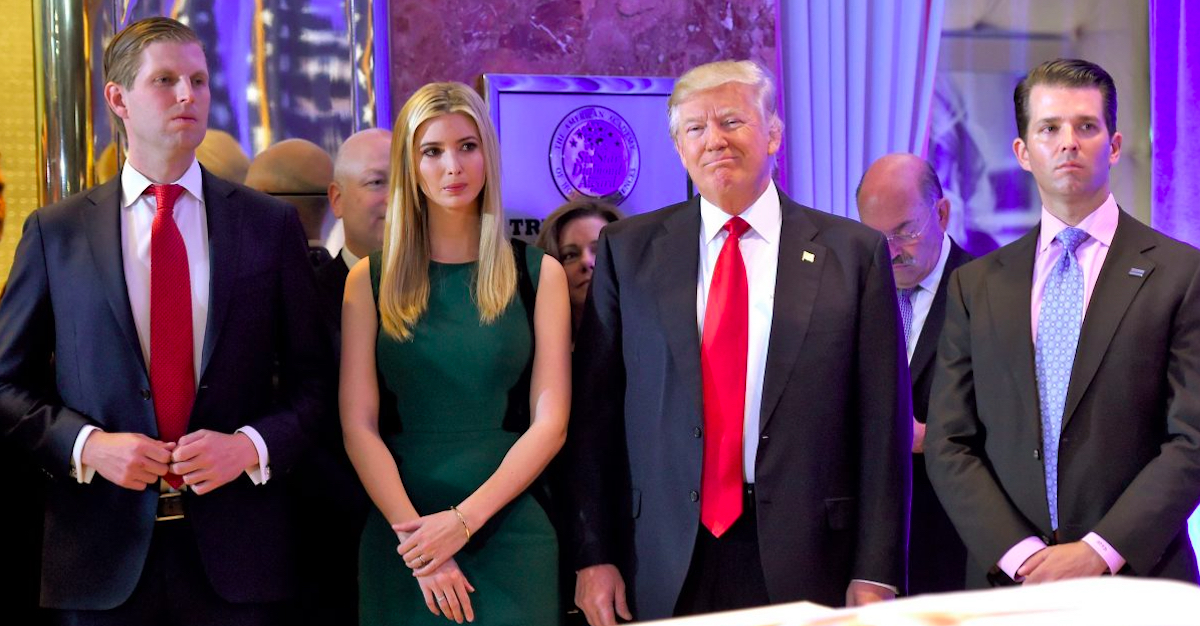
A federal court in Manhattan on Monday ruled against President Donald Trump’s private business, finding that a former business partner could pursue fraud claims stemming from allegations that the president’s company evaded income taxes and under-represented expenses at its scandal-plagued Panama hotel and condominium complex.
The plaintiffs, Ithaca Capital Investments (Capital), purchased a majority of the units in the Panama project in 2016, nearly two years before the Trump International Hotels Management (Trump International) entirely withdrew from the project, which is now JW Marriott.
In a 26-page opinion, U.S. District Judge Edgardo Ramos ruled that Ithaca could amend a previous lawsuit to add fraud claims against Trump International alleging the company induced purchase of a majority of the units by fraudulently misrepresenting the hotel’s performance. Ramos also dismissed Trump International’s counterclaims of breach of contract and fraudulent concealment and inducement against Ithaca.
According to the complaint, Trump’s company repeatedly provided Ithaca with false information while the company was conducting due diligence on the hotel’s financials prior to a potential purchase.
“At a meeting on August 1, 2016, Defendants’ representative falsely stated, among other things, that they had ‘[s]uperior market share’ and ‘the Hotel was achieving better financial results than the market in Panama, which was due to [Defendants’] operation of the Hotel,’” the complaint stated. “Plaintiffs allegedly relied on these representations in their later decision to purchase the units. Plaintiffs further allege that despite reviewing the Hotel’s financials, they could not have known at the time that the records provided by Defendants artificially deflated the Hotel’s expenses, as they discovered later after taking control of the Hotel in March 2018.”
Ramos wasn’t swayed by Trump International’s contention that Ithaca filed its lawsuit in bad faith, as evinced by their having waited 21-months from the initial lawsuit to add the latest claims, writing that the argument was “without merit.”
“However, contrary to Defendants’ contention, Plaintiffs do not only allege that Defendants mishandled the capital reserve funds by failing to treat them as required by the [Hotel Management Agreement], but also that Defendants were pocketing them,” Ramos wrote. “Indeed, Plaintiffs allege that Defendants not only failed to properly fund the Hotel’s reserve account, but have ‘lined [their] pockets with management fees’ and “improperly distributed unearned funds from these reserve accounts to itself,” which they knew they had no right to do. Accordingly, Defendants have failed to carry their burden of showing that the proposed conversion claim is futile.”
The court also shot down Trump International’s attempt to argue that the alleged fraudulent misrepresentations were merely “non-actionable puffery.”
“Plaintiffs allege that Defendants repeatedly represented that the Hotel was ‘achieving better financial results than the market in Panama,’ or ‘out-performing the market in Panama’ due to Defendants’ operation thereof,” Ramos wrote. “This is not puffery.”
“Indeed, the Second Circuit found that a jury reasonably concluded that a similar statement—’posted RECORD HIGH NET INCOME, and ha[d] cash available for investing…the results produced…in the second quarter are well ahead of market consensus’—was actionable rather than puffery,” the judge continued. “Therefore, the Court is not convinced, at this point, that any alleged misrepresentation is not actionable as a matter of law.”
Read Ramos’s full decision below:
Trump Fraud Decision by Law&Crime on Scribd
[image via TIMOTHY A. CLARY/AFP/Getty Images]